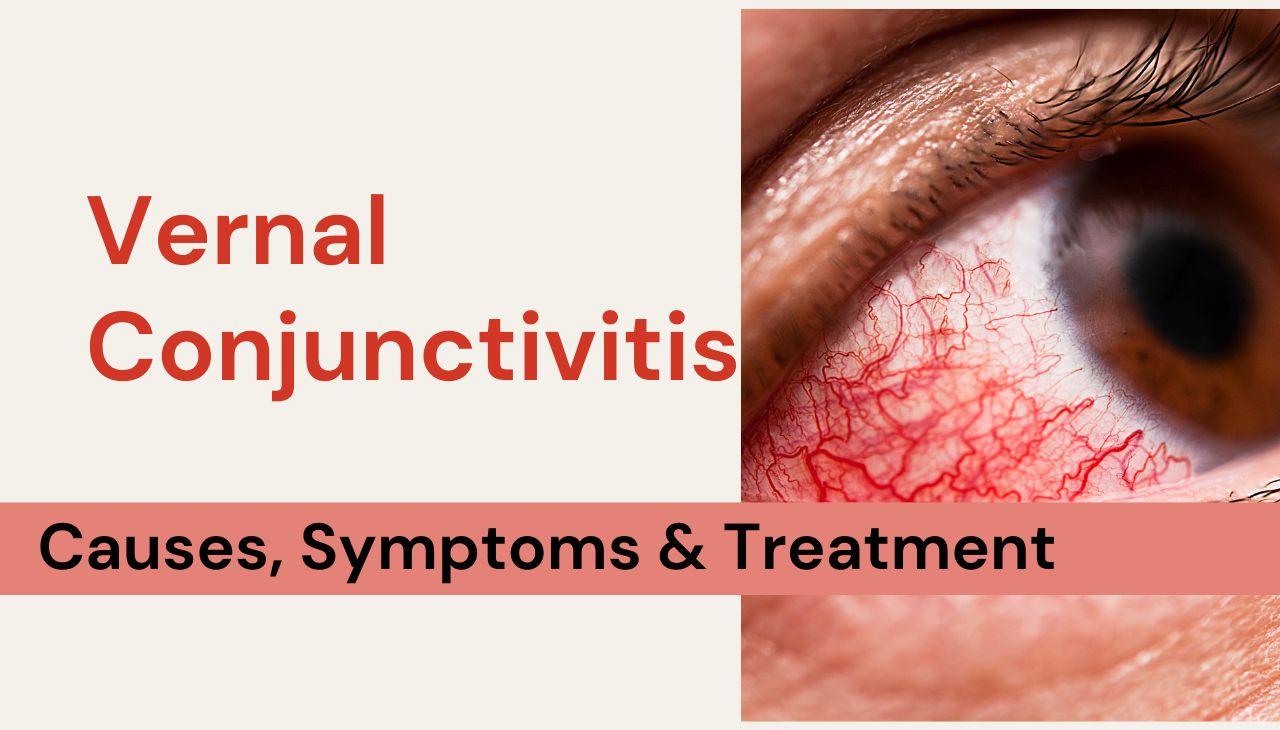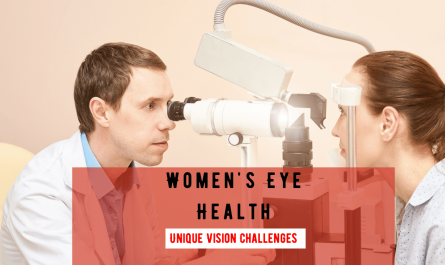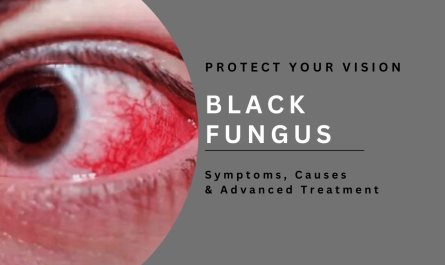Vernal Conjunctivitis: Causes, Symptoms & Treatment
Vernal conjunctivitis is a seasonal eye condition that mostly affects children and young adults. It tends to flare up during spring and summer, often linked to allergic reactions triggered by environmental factors like pollen or dust. This condition may seem like regular conjunctivitis at first, but its symptoms are more persistent and irritating.
Knowing the signs and causes of vernal conjunctivitis can help you seek timely treatment. This blog will help you understand what vernal conjunctivitis is, why it occurs, what symptoms to watch for, and how it can be managed effectively.
What Is Vernal Conjunctivitis?
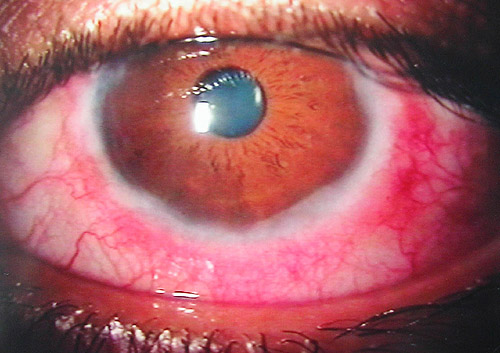
Vernal conjunctivitis, also called vernal keratoconjunctivitis (VKC), is a long-term allergic inflammation of the conjunctiva—the thin membrane covering the white part of the eye and the inside of the eyelids. It’s more common in boys under the age of 20 and usually improves with age.
Unlike bacterial or viral conjunctivitis, vernal conjunctivitis is non-contagious and tends to return seasonally, especially during warmer months.
Causes of Vernal Conjunctivitis
The condition is primarily caused by an overactive immune response to allergens in the environment. Some key triggers include:
- Pollen from trees, grass, or flowers
- Dust and dust mites
- Mold spores
- Animal dander
- Smoke or strong chemical fumes
People with other allergic conditions like asthma, eczema, or hay fever are more likely to develop VKC.
Common Symptoms
Vernal conjunctivitis has distinct symptoms that can become very uncomfortable if not treated. These include:
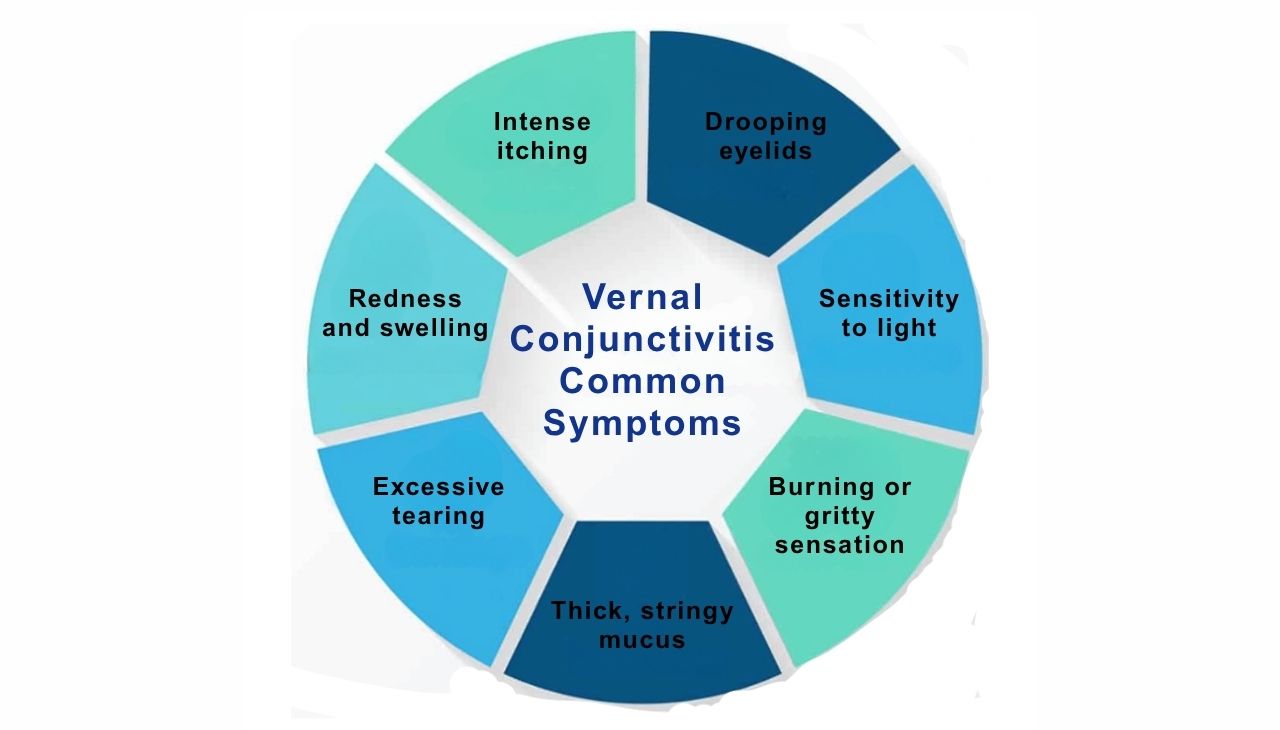
- Intense itching of the eyes
- Redness and swelling in the eyes
- Excessive tearing or watery discharge
- Thick, stringy mucus from the eyes
- A burning or gritty sensation
- Sensitivity to light (photophobia)
- Drooping eyelids or difficulty keeping eyes open
In severe cases, you may also see small bumps (papillae) on the inner surface of the eyelid, which can cause additional irritation.
Who Is at Risk?
This condition is most common in:
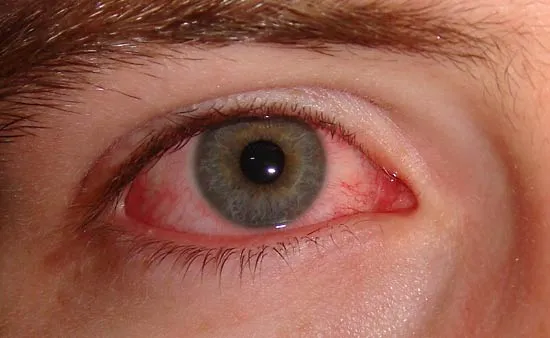
- Children and teenagers, especially boys
- Individuals living in hot, dry, or windy climates
- Those with a history of other allergic conditions
- People exposed to outdoor allergens during spring or summer
Though not life-threatening, VKC can significantly affect quality of life due to constant discomfort and light sensitivity.
Diagnosis
A comprehensive eye examination is necessary for proper diagnosis. An eye doctor may:
- Ask about your medical and allergy history
- Examine your eyes using a slit-lamp microscope
- Look for signs like swollen conjunctiva or cobblestone-like papillae
- Take a swab for allergy testing if needed
Early diagnosis helps prevent complications such as corneal ulcers or long-term vision problems.
Treatment Options
Treatment depends on the severity of symptoms. Common approaches include:
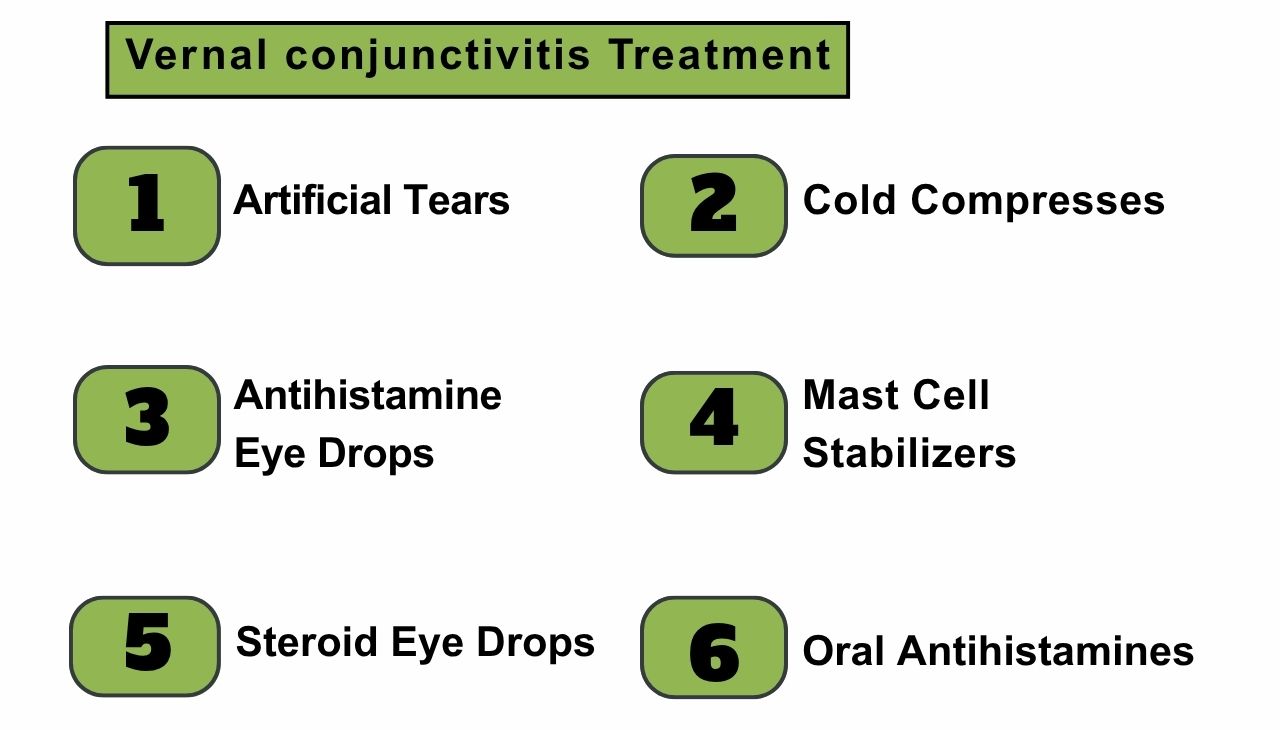
● Artificial Tears
– Help flush out allergens and soothe irritation
– Can be used multiple times a day
● Cold Compresses
– Reduce swelling and itching
– Easy to apply at home
● Antihistamine Eye Drops
– Control allergic reactions
– Often used during allergy seasons
● Mast Cell Stabilizers
– Prevent the release of histamines
– Take time to work but help in long-term control
● Steroid Eye Drops
– Used only for severe cases
– Require medical supervision to avoid side effects
● Oral Antihistamines
– For individuals with other allergy symptoms like sneezing or a runny nose
Avoiding allergens and maintaining good eye hygiene is equally important. Regular follow-ups with your ophthalmologist ensure the condition is under control.
Can It Be Prevented?
While it may not be entirely preventable, you can reduce flare-ups by:
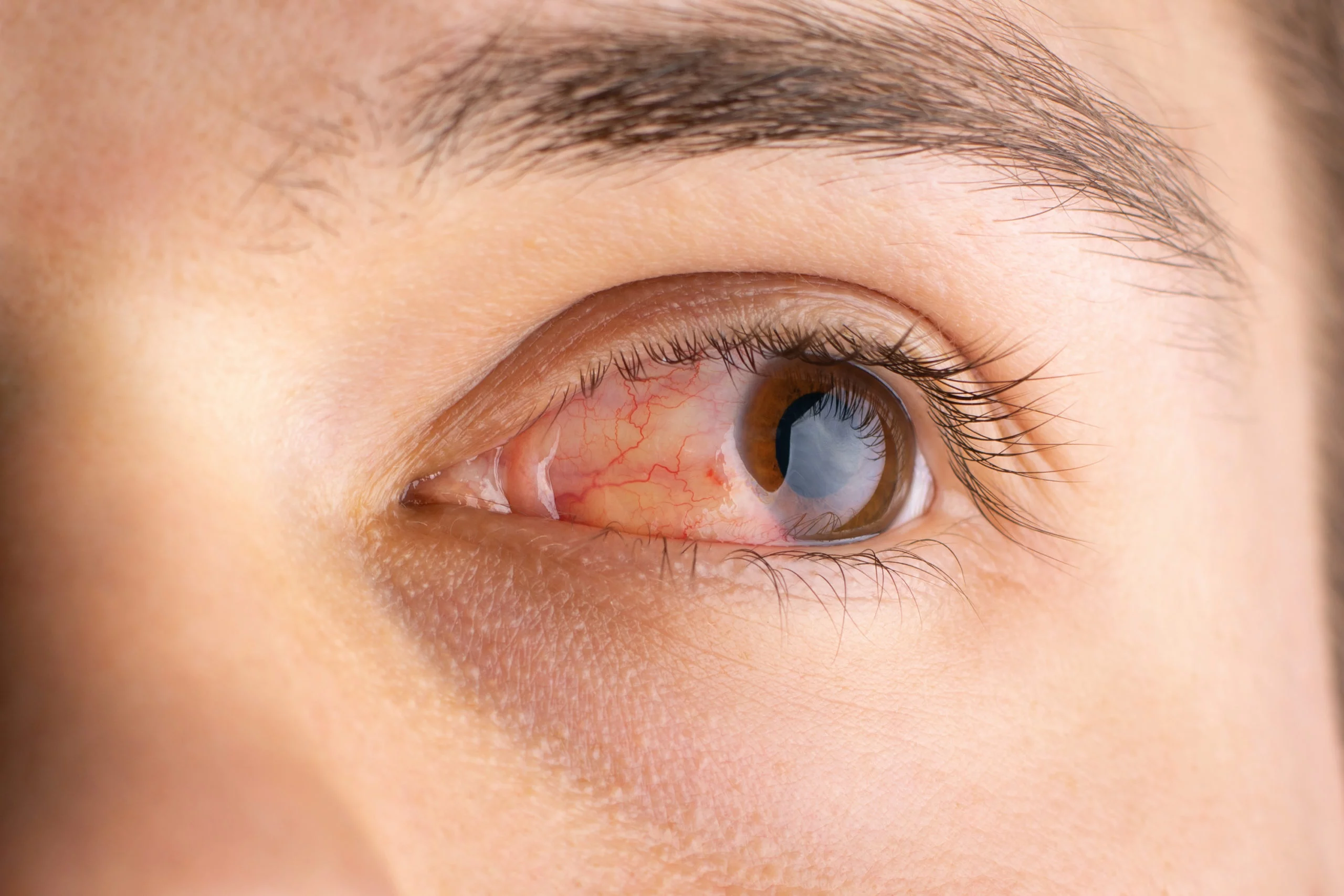
- Limiting exposure to allergens during peak seasons
- Wearing sunglasses outdoors
- Keeping windows closed during high-pollen days
- Using air purifiers at home
- Avoiding rubbing your eyes
When to See a Doctor
If your child experiences eye discomfort that doesn’t improve within a few days, or if their vision is affected, consult an eye specialist. Timely treatment can ease symptoms and prevent complications.
Laxmi Eye Hospital has been a trusted name in eye care in Mumbai for over 30 years, known for its experienced doctors and patient-focused care. The hospital offers advanced diagnostic and treatment services across specialties including Specs Removal/LASIK (Bladeless LASIK, ICL, IPCL, Contoura Vision), Cataract, Glaucoma, Diabetic Eye Care, Retina Treatment, Pediatric Ophthalmology, and Cornea Clinic services like Eye Donation and Keratoconus Management. Patients can access care at four convenient locations: Dombivli (SS Business Park, Gharda Circle), Kharghar (Anant CHS, Sector 4), Panvel (Mulla Hamid Road, Old Panvel), and Kamothe (Pratik Gardens, Sector 34).
Book your appointment today to receive the right care for your eye condition.
FAQs
❓ What is the difference between regular conjunctivitis and vernal conjunctivitis?
Vernal conjunctivitis is allergic and seasonal, while regular conjunctivitis may be caused by viruses or bacteria and is often contagious.
❓ Can adults get vernal conjunctivitis?
It’s rare in adults. VKC mostly affects children and usually improves with age.
❓ Is vernal conjunctivitis contagious?
No. It is not caused by infection and cannot be spread from one person to another.
❓ Can I use over-the-counter drops?
Artificial tears can help, but prescription drops are usually needed for lasting relief. Always consult your doctor.
❓ How long does vernal conjunctivitis last?
It can last for several weeks or recur every year during allergy season.
If your child is struggling with eye itching, redness, or discomfort during seasonal changes, don’t ignore it. Early diagnosis and treatment of vernal conjunctivitis can prevent long-term discomfort and complications. Consult your eye specialist for guidance and personalized care.
Let your eyes stay healthy through every season—get them checked at Laxmi Eye Hospital.

